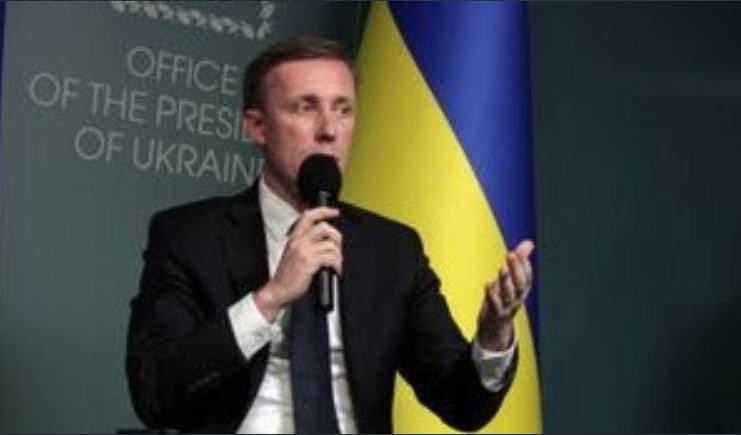It’s All Diplomacy
Over the weekend, the Wall Street Journal revealed that Jake Sullivan, President Biden’s National Security Advisor, has been in contact with Vladimir Putin’s advisors over the past several months. This is no surprise, because contact is particularly important in times of conflict. The US maintained contact with the USSR, and has maintained contact with Russia in regard to both countries’ activities in Syria. This is diplomacy.
The Biden administration is also urging Ukraine to signal willingness to talk to Russia. That would mean dropping or softening insistence that diplomacy can talke place only after Putin is no longer in power. This is diplomacy.
A New York Times reporter responded to the WSJ news by saying that The Letter – the one that Dan and Rob have written about – made a difference. I am sorry to see that a reporter from the Paper Of Record has such a naïve view of how things work. I’ve lost the tweet.
If the administration leaked this news, it is because diplomacy has been going on for weeks to months and has some stability. A too-early leak of such information can damage or end the connection. So all this diplomacy was in progress before The Letter.
The Washington Post article is reasonably balanced. It says only that the administration is urging Ukraine to give up a hard-line stand that eliminates the possibility of talking to Russia. It does not say that the US is pressing for negotiations to end the war, which the US, as far as I am aware, is not.
The Letter was incoherent, but it seemed to be within the genre of wishful thinking that says that diplomacy™ can end the war. The war will end with diplomacy – negotiations on boundaries, time schedules for withdrawals, the conditions for interactions between Ukraine and Russia, reparations to Ukraine, and many other issues. But diplomacy cannot end the war. Right now, neither side is willing to enter negotiations. So there will be no negotiations.
Negotiations require that both sides feel that their positions on the ground are good enough or untenable enough to negotiate. Lawrence Freedman explains in great detail how that works. We are not even close.
But there is a belief that diplomacy™ can end the war. We all want the destruction in Ukraine, the deaths, the war crimes to stop. But until the two sides are ready to negotiate, diplomacy is limited.
Charles Kupchan gave us one more repetition of diplomacy™ over the weekend in the New York Times. The same arguments, the same wishful thinking. A ceasefire now would favor Russia in terms of ground occupied and a much-needed pause for restocking and rest. That doesn’t mean that people advocating a ceasefire and diplomacy™ favor Russia, it means that they haven’t thought out what Freedman explains.
There’s more diplomacy too. A few weeks back, Russia advanced a claim that Ukraine was preparing a dirty bomb attack. The US and other recipients of the Sergei Shoigu phonecall turned up the heat with an information offensive that, after a week or so, shut down Russia’s claims. Additionally, the Kremlin cooled down its associated claims of possible nuclear strikes. After the Ukrainians struck the Russian Black Sea fleet, Putin threatened to end grain shipments. Russia also relented on that.
According to the WSJ article, a regular meeting on the New START will take place later in November.
The desire for diplomacy™ to end the war now is understandable but unrealistic. Diplomacy is broader than a single directed action. Useful talks on Ukraine could occur at the fringes of the New START talks. An additional message in the pushback on the dirty bomb claim is that the US has some damn good information sources in Russia.
It’s all diplomacy.
Cross-posted to Nuclear Diner



